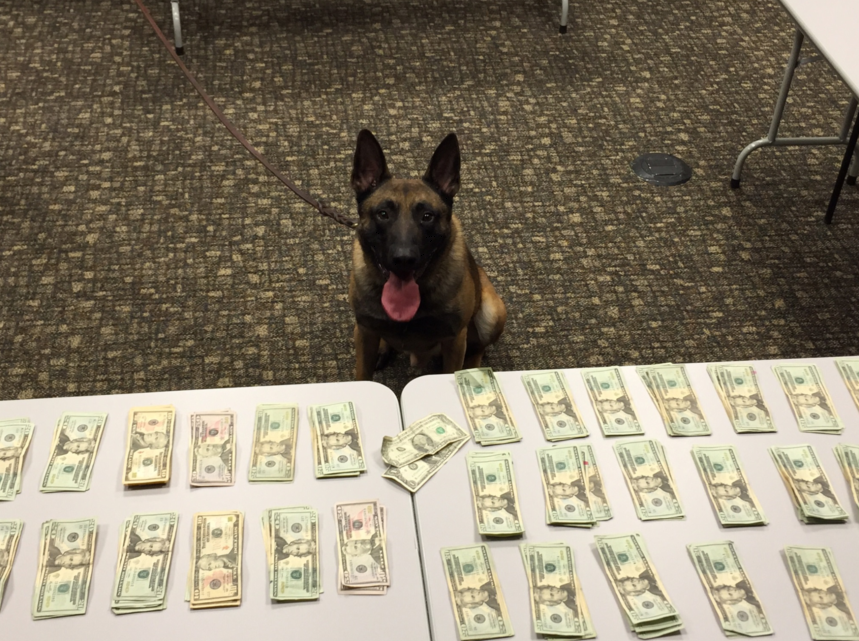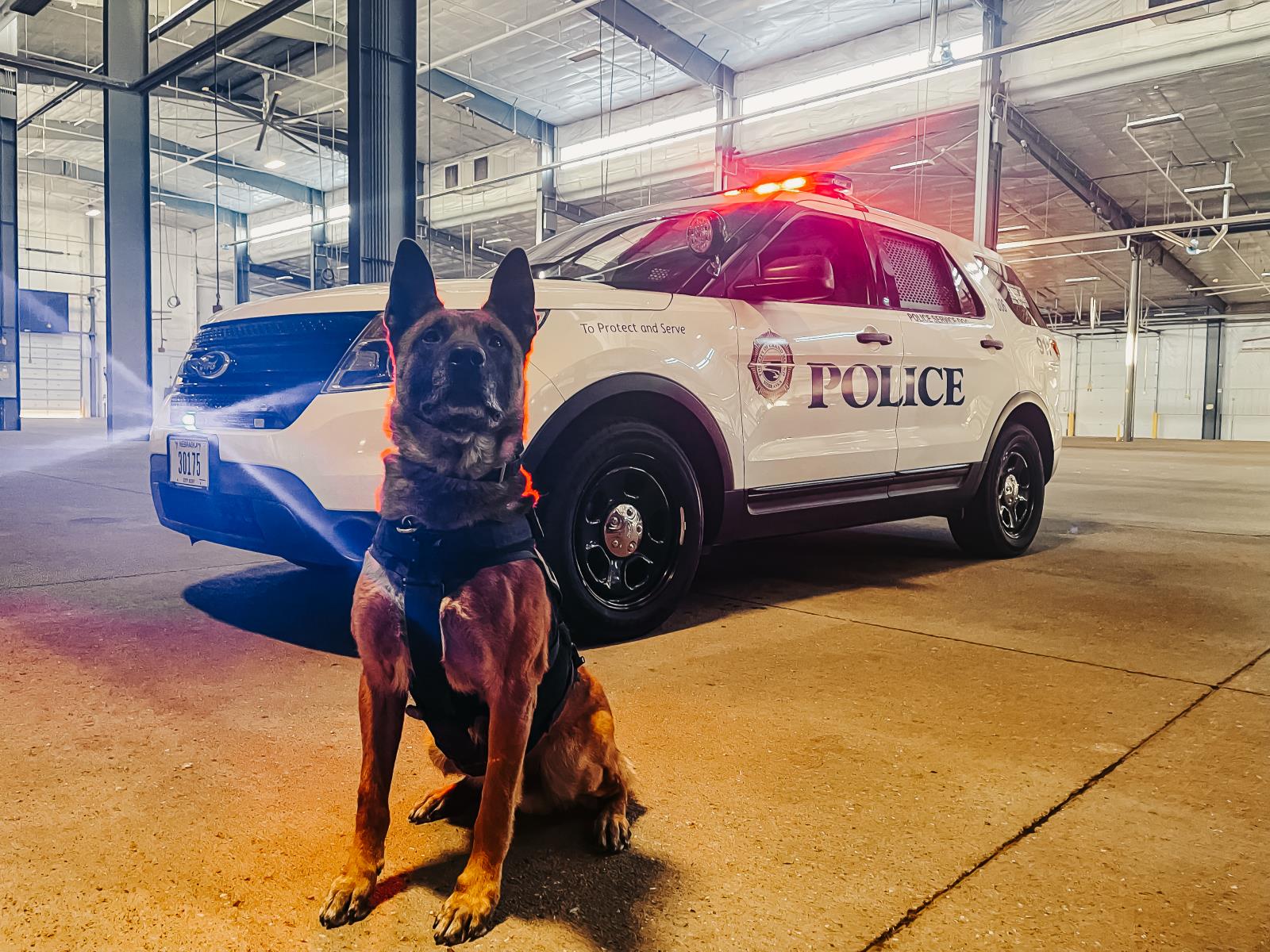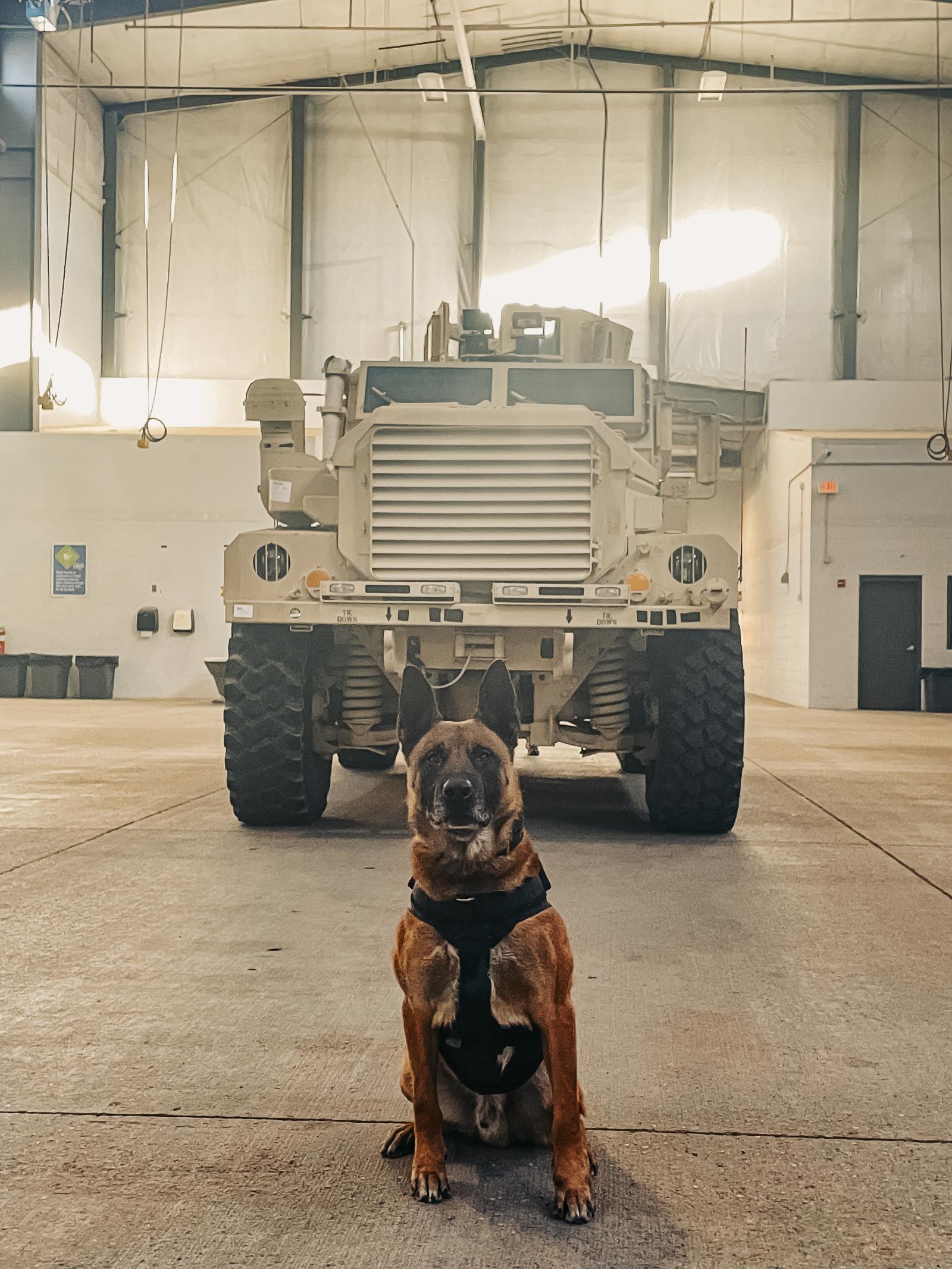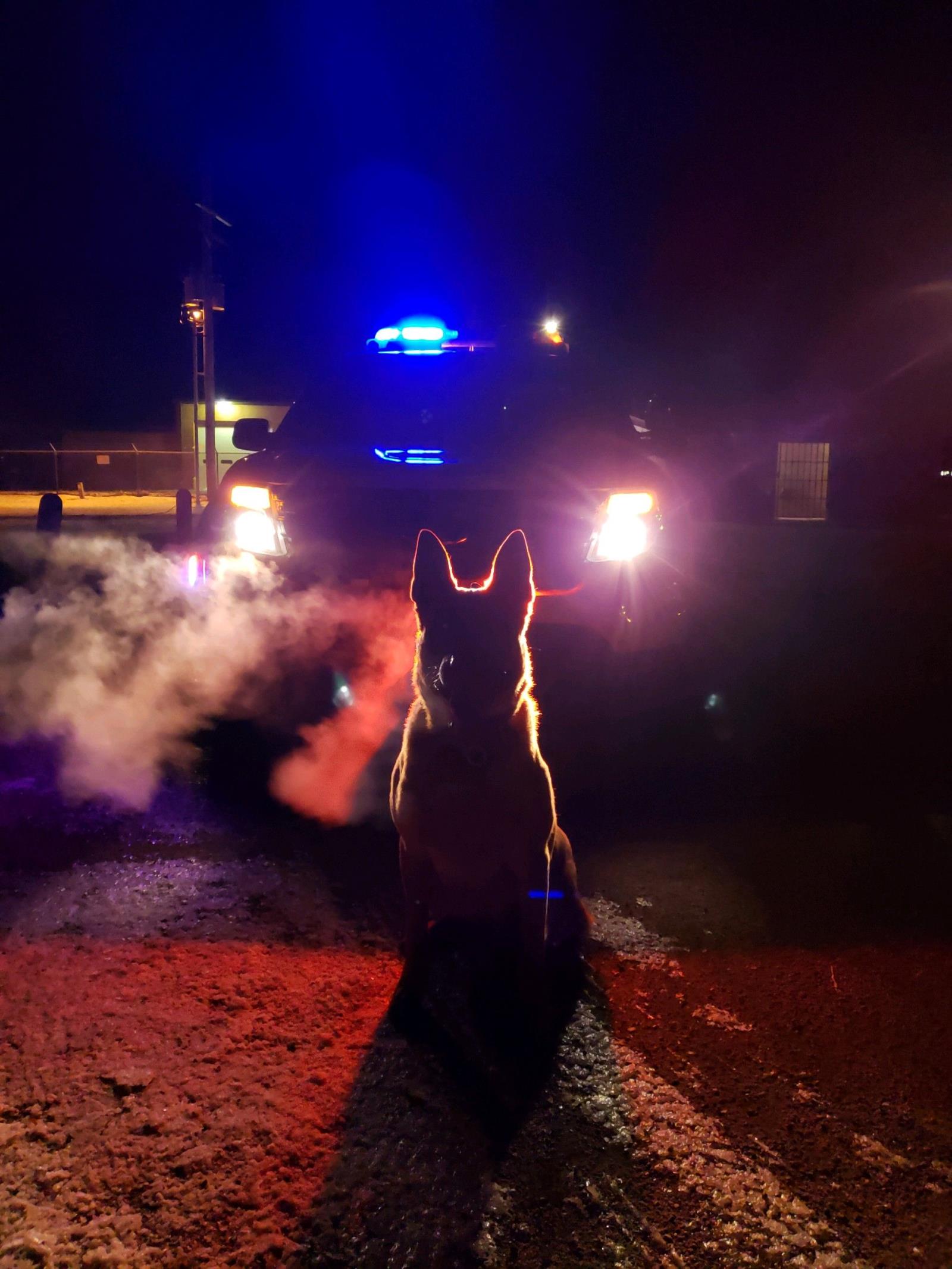K9 Unit

If you would like to make a donation to the Grand Island Police Department K9 Unit, please come to the Law Enforcement Center at 111 Public Safety Dr.
K9 - Officer Cello
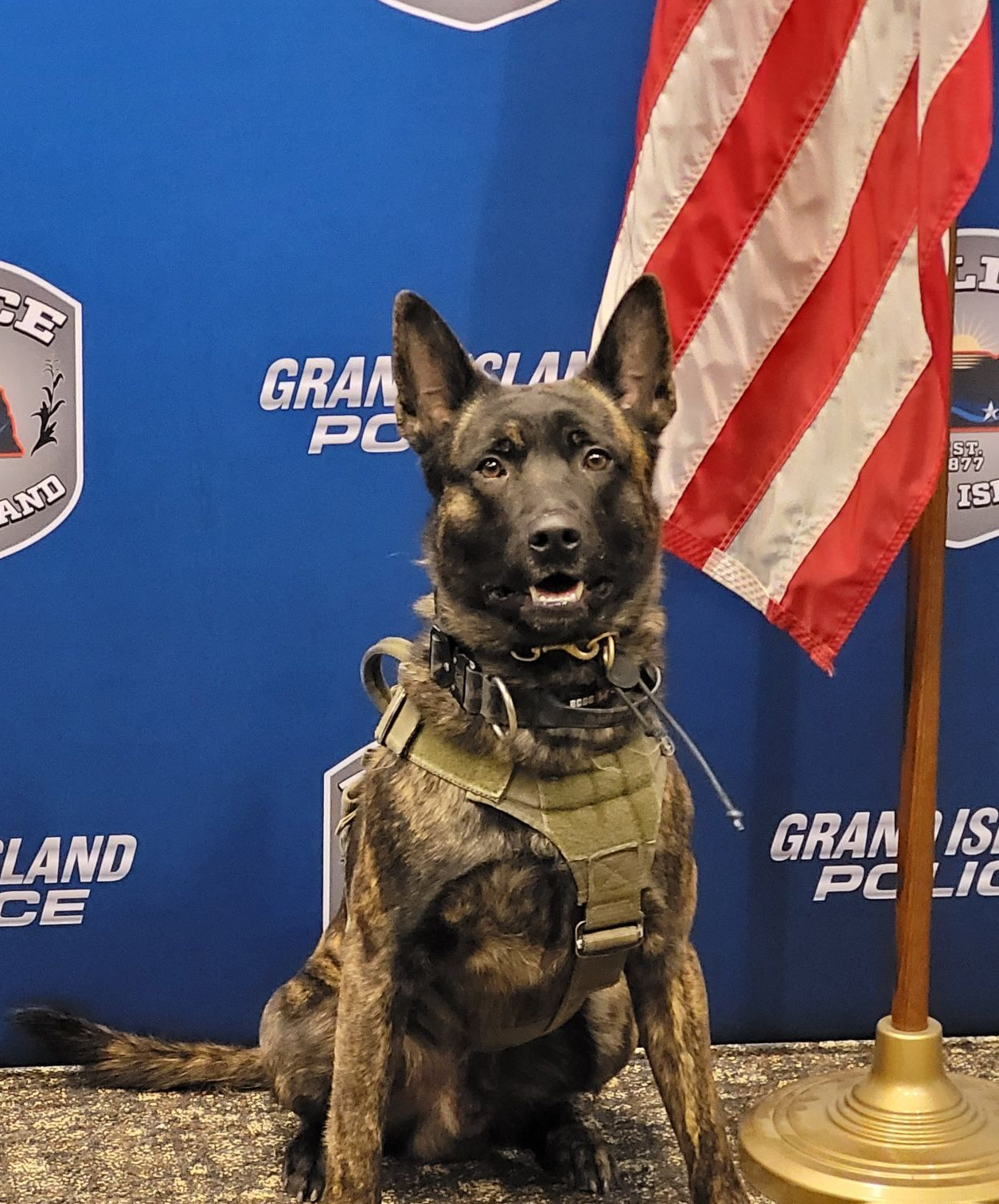
Breed: Dutch Shepherd
Name: Cello #801K
Named after Officer Marcello #460
Gender: Male
DOB: October 25, 2021
Country of Origin: France
Certified in Patrol, Narcotics, and Tracking
Bought from BlueStreak K9, Jonesboro, AR
Veteran since 2024
Dutch Shepherd
Highly Effective in Law Enforcement.
Dutch Shepherds are ideal working dogs for Law Enforcement due to their intelligence, versatility, and their strong work ethic. They are a very loyal breed that are able to stay calm under pressure, making them perfect and reliable partners for officers in demanding situations.
Therapy Dog - Officer Boone
Breed: English Lab
Name: Boone
Gender: Male
DOB: September 8th, 2023
City of Grand Island
Police Department
Veteran since 2024
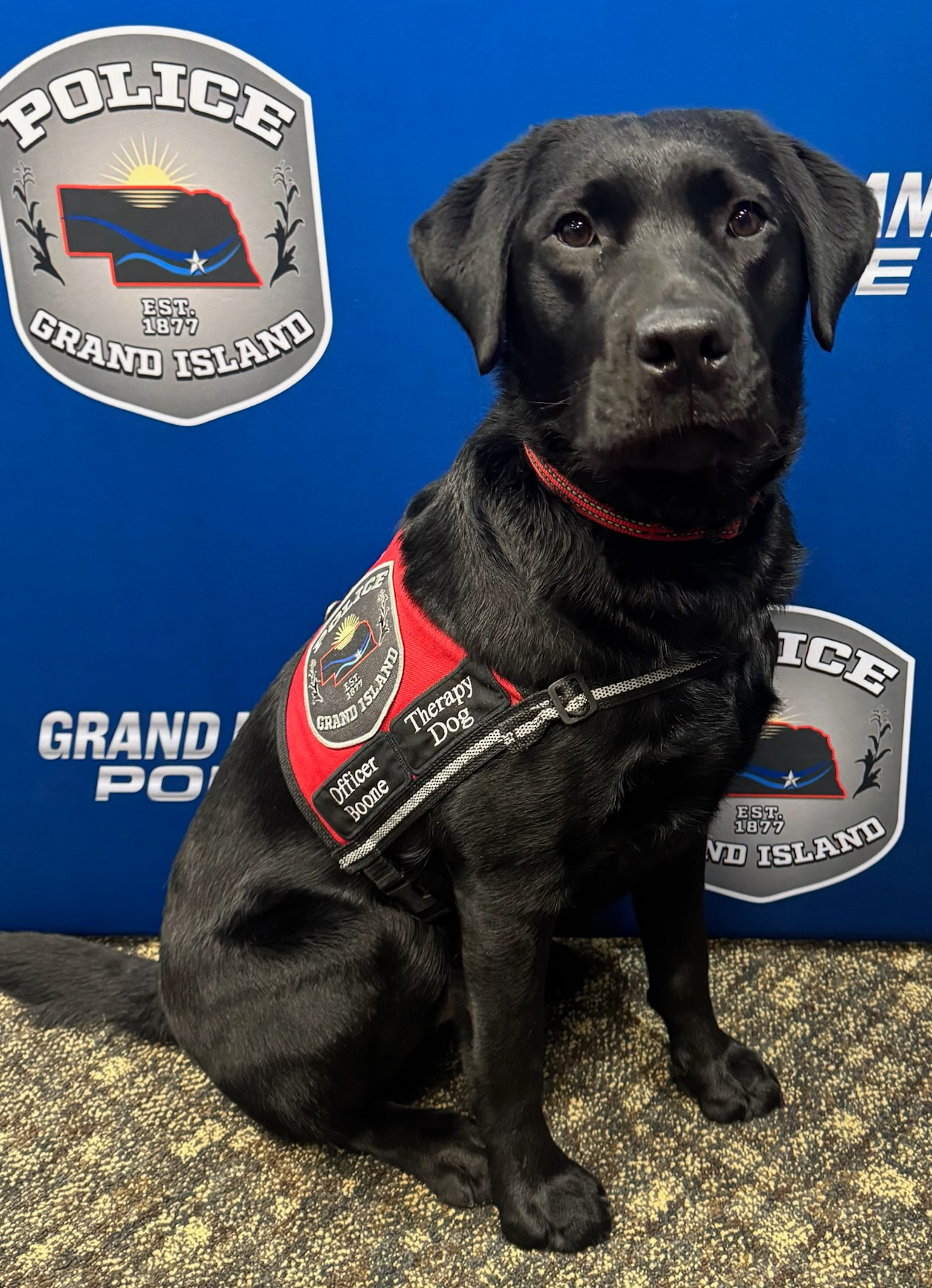
Boone was purchased by a generous donation from Hornady Manufacturing and is assigned to the School Resource Officer (SRO) program with GIPD. The purpose of a therapy dog is to provide psychological support and comfort to people in need. Therapy dogs can help reduce stress and anxiety, increase self-esteem, and improve mood. Boone is primarily used in schools to break down barriers and provide comfort to kids who are anxious or stressed about school.
As a Police K9, Boone and his handler attend various events around Grand Island to reach out to the public to help spark communication between police officers and community members. He is not used on routine patrol and is not trained in detection or apprehension like other Police K9s.
Retired K9 - Officer Cochise
Retired: November 12, 2024
Breed: Belgian Malinois
Name: Cochise
Gender: Male
DOB: May 9, 2014
City of Grand Island
Police Department
Veteran Since 2017
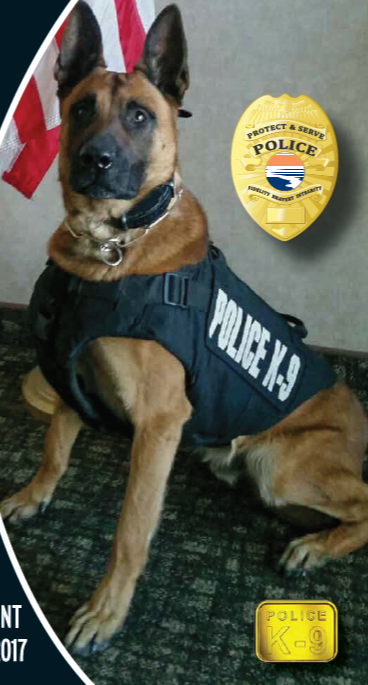
Belgian Malinois
Ideally Suited for Law Enforcement and Detection.
Naturally protective but not overly aggressive, Mali-nois are agile, driven and work-loving. They are social and operate well with multiple handlers. Two coats of hair allow them to adapt to a wide range of climate conditions.
